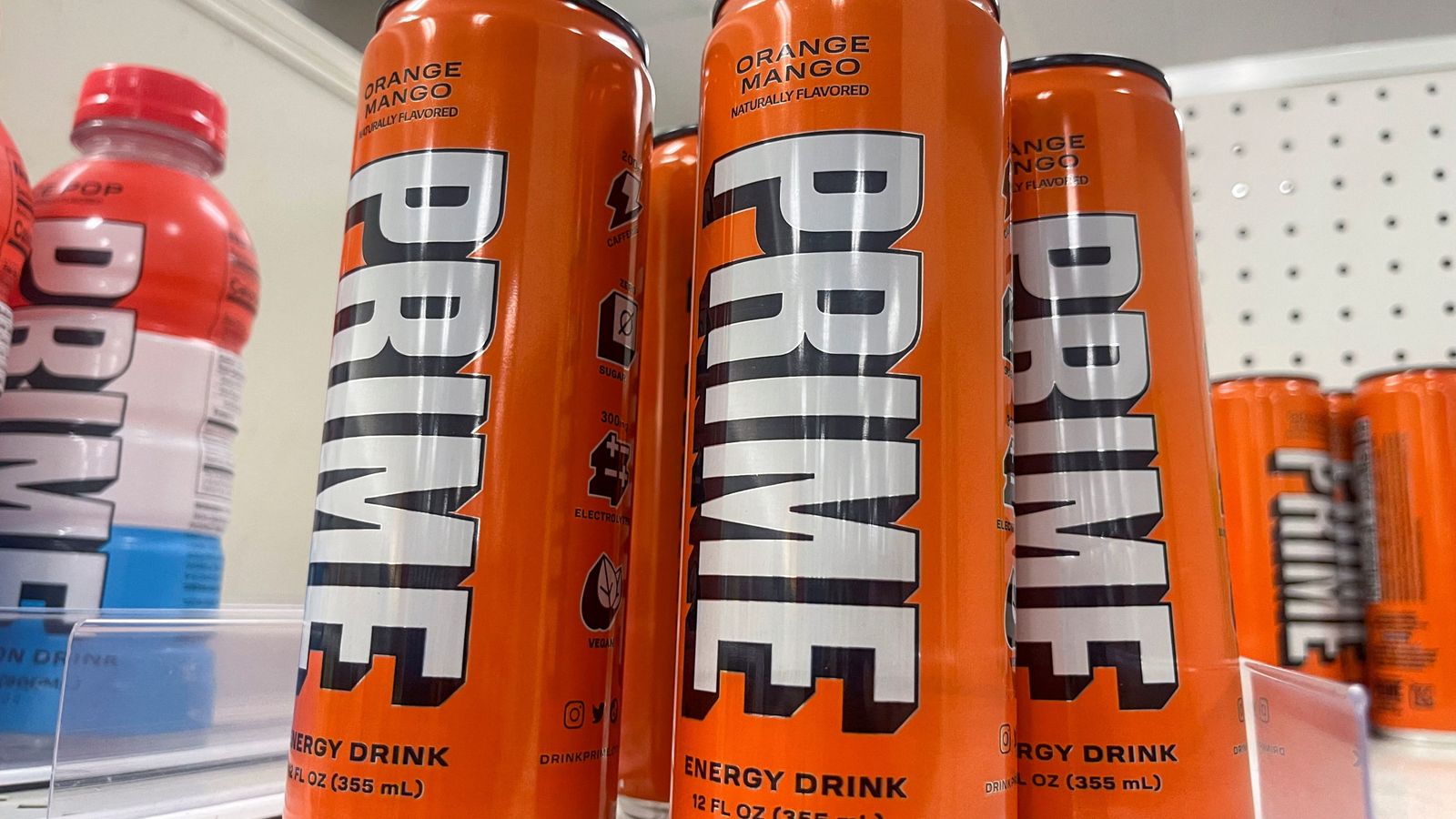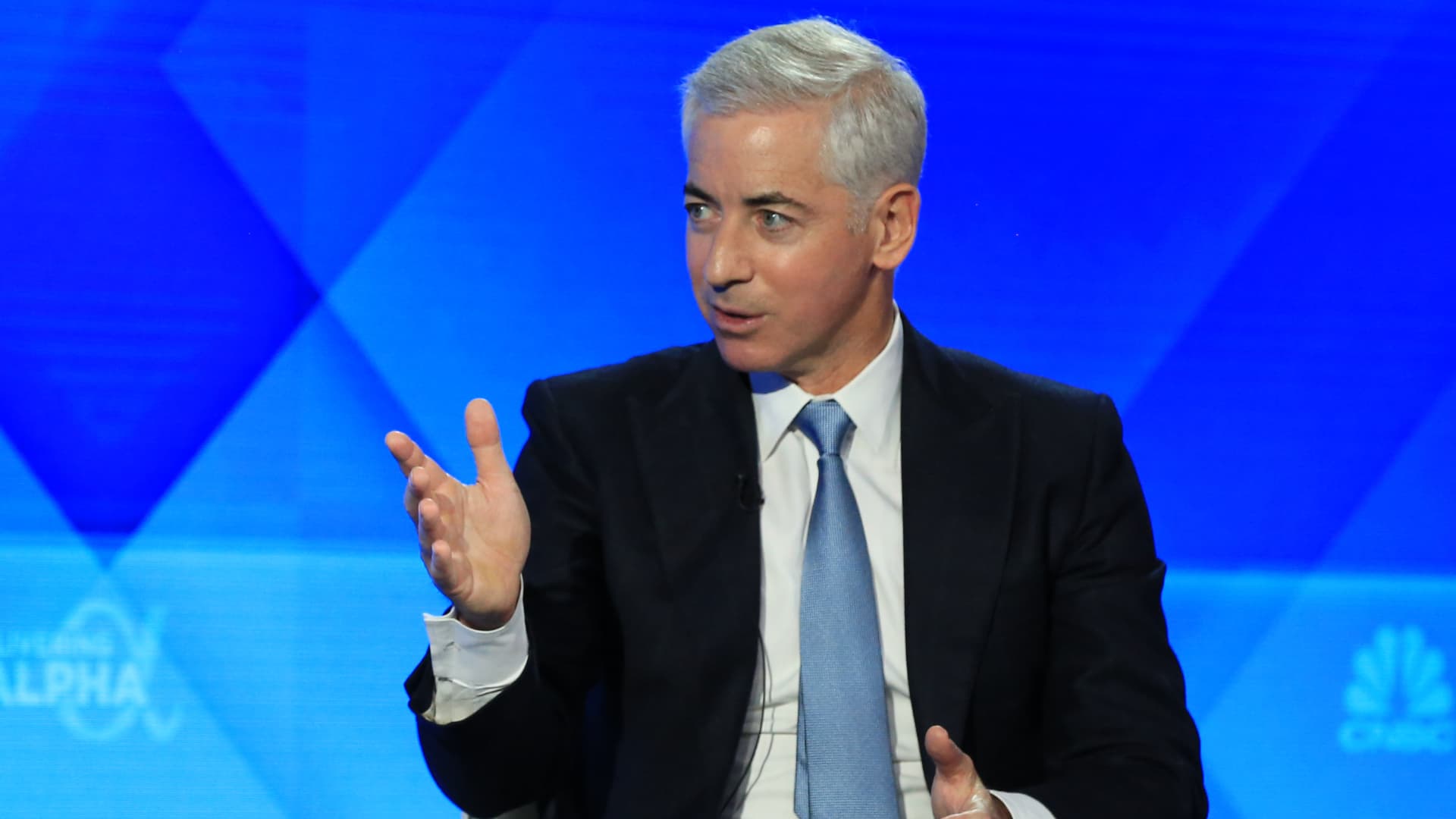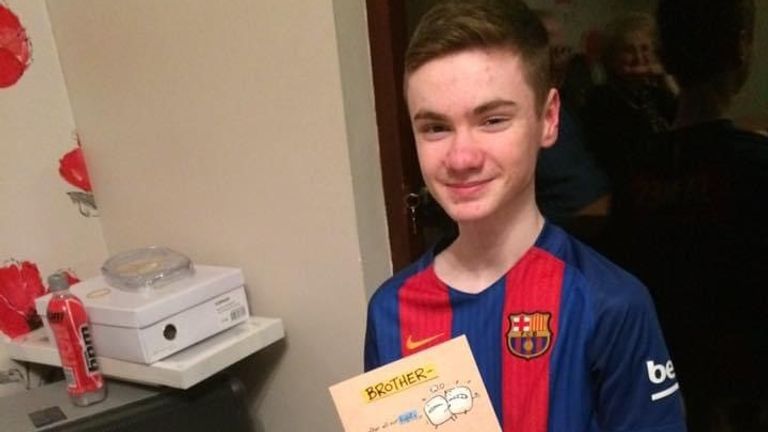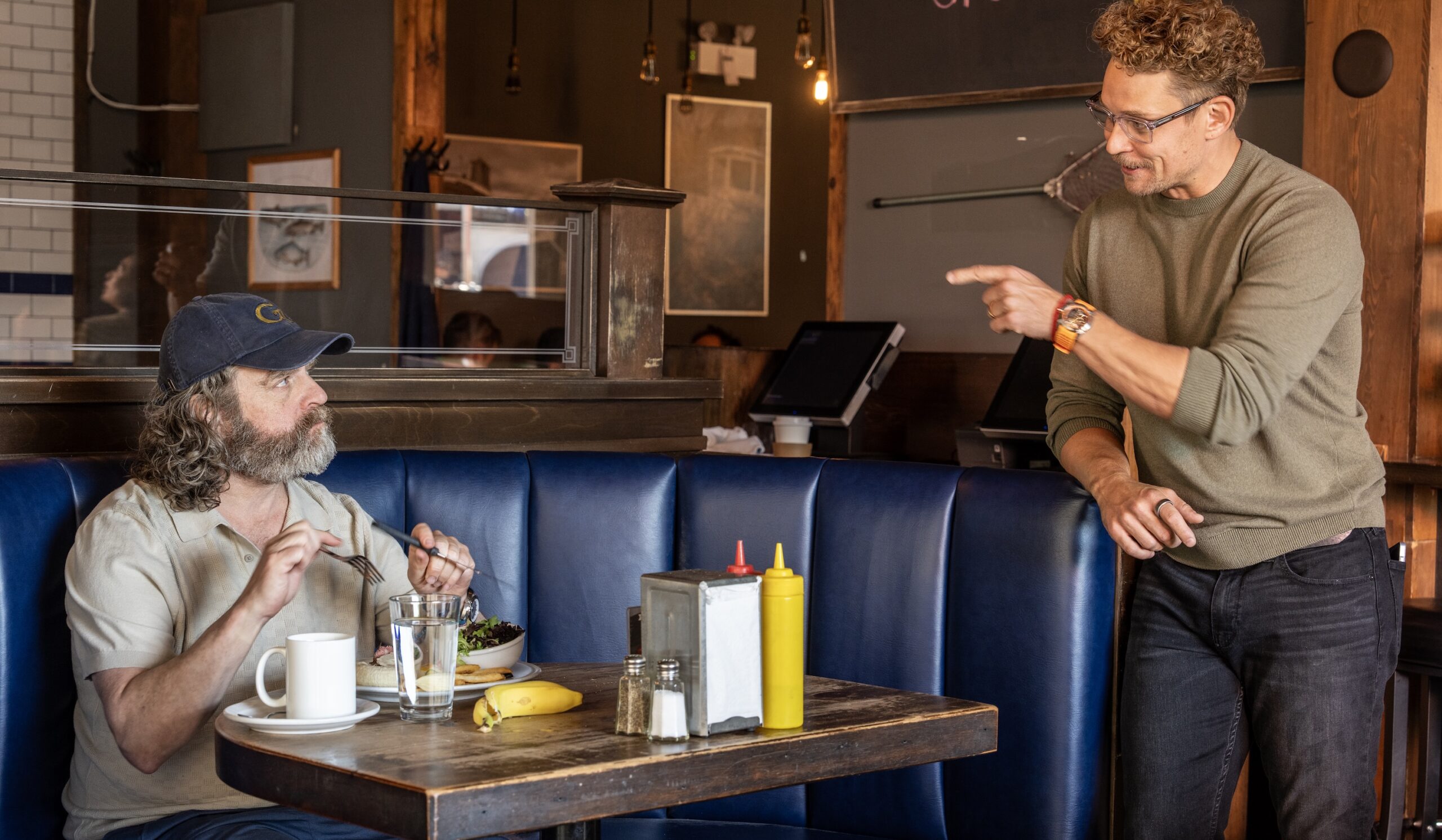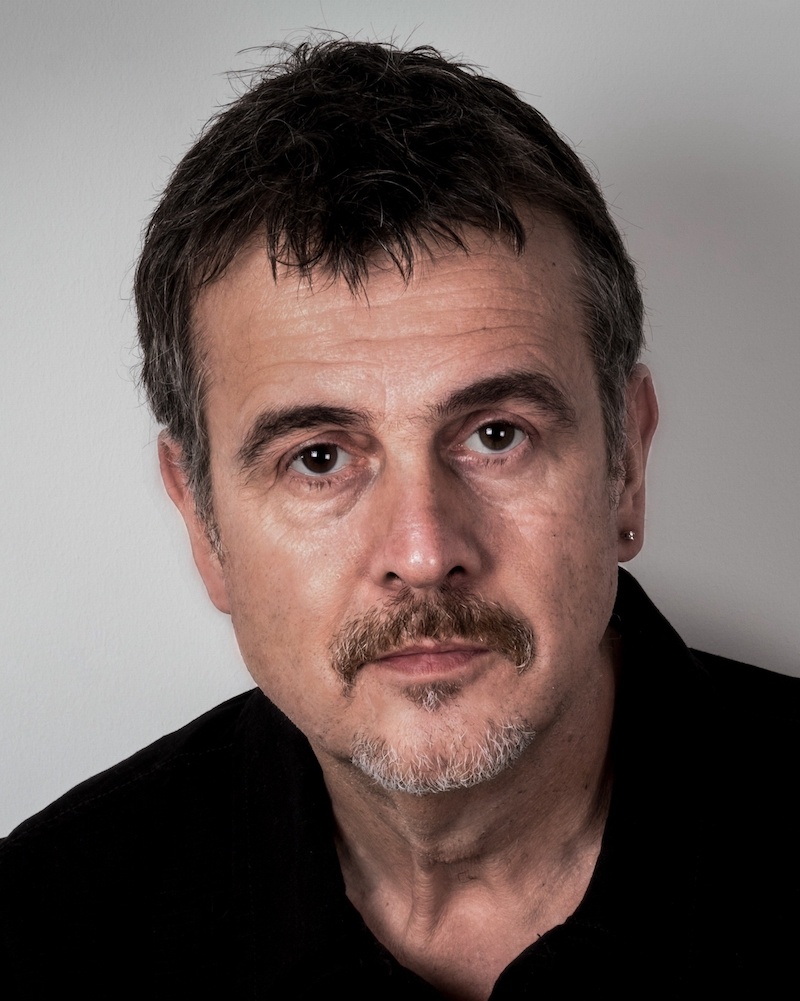A ban on the sale of energy drinks to under-16s is being considered by the Labour Party if it wins power, Sky News understands.
The proposal has been submitted for the party’s election manifesto, amid growing evidence of the health risks to young people from the high-caffeine products.
Up to a third of children in the UK consume at least one energy drink every week, particularly boys, according to a government-commissioned study.
A large bottle can contain twice as much caffeine as a cup of coffee, as well as high levels of sugar.
Many supermarkets have introduced a voluntary ban on the sale of energy drinks to under-16s, but they are still freely available in smaller shops and from vending machines.
Researchers say the evidence to support restrictions is growing, due to the drinks’ effects on mental and physical health – along with concern at how they are marketed to young people.
Last month, a review of 57 recent studies, involving more than a million children in 21 countries, found consumption of such products was linked to increased stress, anxiety, poor academic performance and even the risk of suicide.
‘The evidence is clear’
Amelia Lake, a professor of public health at Teesside University, who was the lead author of the review, told Sky News: “The evidence is clear that energy drinks are harmful to the mental and physical health of children and young people, as well as their behaviour and education.
“In terms of the physical health that goes from tooth decay through to cardiac effects, through to headaches and stomach issues.
“But then when you start to look at the mental health outcomes that range from anxiety, depression, right through to increased thoughts about suicide and suicide attempts, which was very shocking for us as researchers to see that, but that was the finding of some rather large studies.”
Sir Keir Starmer‘s office would need to approve the proposal for it to become party policy.
But the Labour leader said earlier this year – when announcing his party would support supervised toothbrushing in schools – that he would defend the party against accusations it was going too far towards a “nanny state” and was “up for that fight“.
‘I was hospitalised over energy drink addiction’
James McCann, now 23, started consuming energy drinks at the age of 11 when he started secondary school in Newry, Northern Ireland. His habit escalated until he was drinking up to four a day.
“I was 11, 12, all my mates were drinking them. There was a shop on my way to school and it was just so easy to pick one up. They were next to the bottled water and fizzy drinks,” he said.
During his GSCEs, drinking them on an empty stomach, his weight plummeted to under six stone and ended up being hospitalised with gastritis – which doctors blamed on his energy drink consumption and diet.
“With the stress of exams, you know, I was just pumping these energy drinks into myself and actually got admitted to hospital. It turned out I had a condition called gastritis, which was basically the lining within your stomach had been eroded away. I’d get incredible cramps, huddled over in pain,” he said.
“And you couldn’t sleep anyway because all the chemicals and all the caffeine was just keeping your brain so active, you couldn’t rest at all. It was a nightmare really.”
He had to drop out of college to recover. Now off the drinks altogether, he has graduated with a degree in business from Liverpool John Moores University – and is warning other young people about his experience.
James said he supported a nationwide ban for under-16s.
“It was an addiction. These are addictive substances,” he said. “People don’t understand how easy it is to get addicted. Never mind what sort of stuff they’re putting in their body and the effects it can have on them.”
‘Not recommended for children’
Energy drinks are defined by the Food Standards Agency as drinks with high levels of caffeine, marketed as giving a mental and physical energy “boost”.
They can contain as much as 200mg of caffeine in a large bottle – which is more than twice as much as a cup of coffee at 80mg, or a can of fizzy cola which typically has around 35mg.
The government previously said they would ban energy drinks for under-16s in England in 2019, after a consultation the previous year in which the proposal was supported by 93% of respondents. But the ban has not been implemented.
A committee of MPs looked at the issue in 2018 and called for better labelling – rather than a ban. The Scottish government has also examined the possibility of introducing similar measures.
Read more:
Man suffers heart failure after regularly downing energy drinks
US food agency asked to investigate drink over caffeine levels
Gavin Partington, of the British Soft Drinks Association (BSDA), said their voluntary code of practice “contains a number of stringent points on responsible marketing, meaning BSDA members do not market or promote energy drinks to under-16s, nor do they sample products with this age group.
“In addition, our members’ energy drinks carry an advisory note stating ‘not recommended for children’. Our members remain committed to supporting the responsible sale of energy drinks.”

